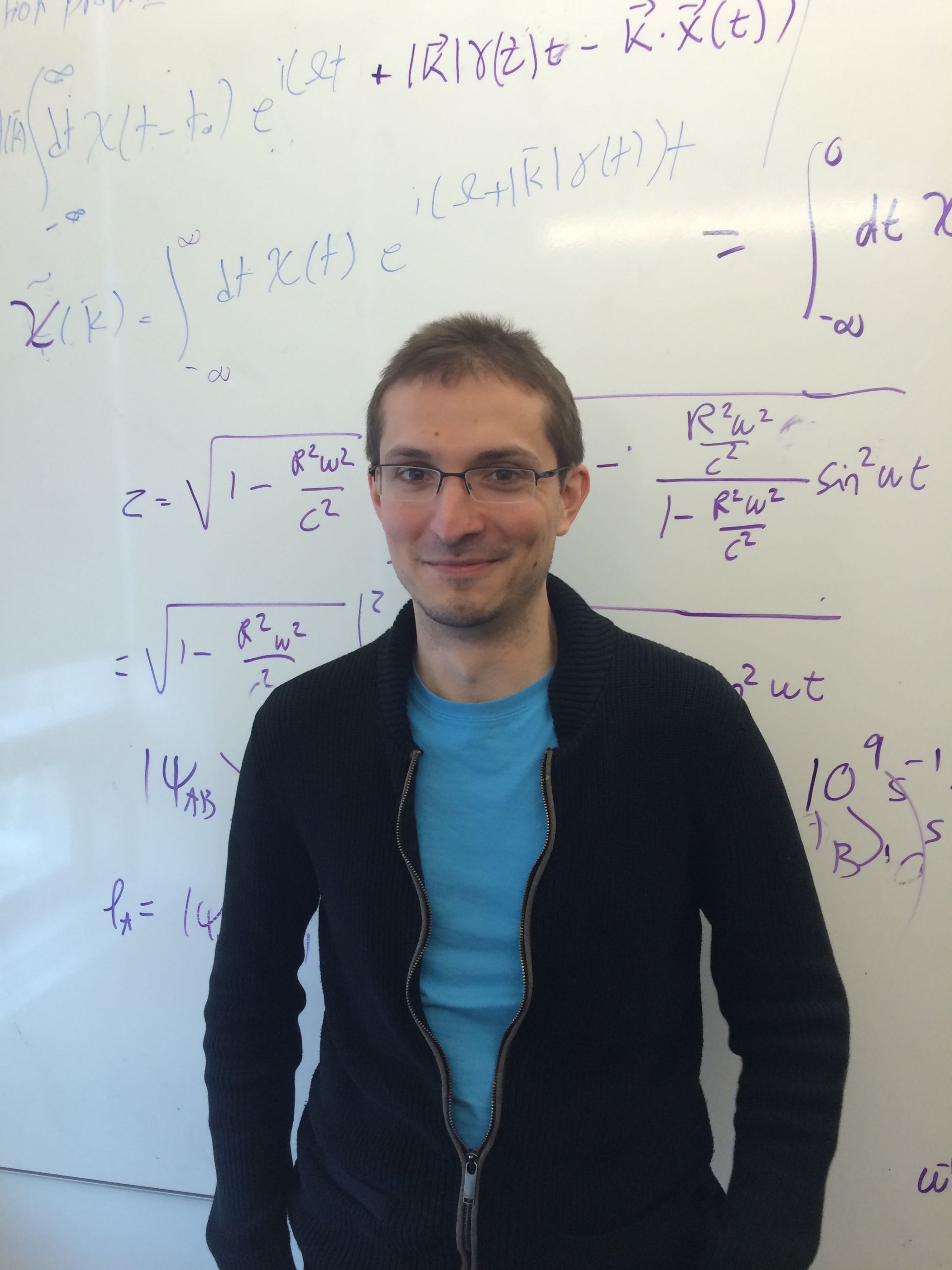IQC researcher wins COU Polanyi Prize for his work in Relativistic Quantum Information
Quantum technologies currently under development will eventually hit a limit, just as today’s computing devices are about to reach their classical limits. Eduardo Martin-Martinez is one of a handful of researchers already investigating what’s beyond non-relativistic quantum science and technologies.

The Polanyi Prizes are given in five categories: Physics, Chemistry, Physiology or Medicine, Literature and Economic Science. Martin-Martinez was given the only Physics prize for his work, which recognizes outstanding young researchers. He is the second Polanyi Prize winner from IQC (Anne Broadbent, 2010).
“I see this great prize as recognition for the field of Relativistic Quantum Information,” said Martin-Martinez, who also received a prestigious Banting Postdoctoral Fellowship in 2012. “I feel very fortunate to work in this hub in Waterloo where researchers are studying quantum information and theoretical physics at the Institute for Quantum Computing, the University of Waterloo and the Perimeter Institute.
A member of the Department of Applied Mathematics at Waterloo, Martin-Martinez collaborates with experimentalists at IQC including Adrian Lupascu and Chris Wilson working on implementations of relativistic quantum information in superconducting qubits and Thomas Jennewein in the area of entanglement at long distances. Martin-Martinez works to incorporate relativity into the experiments to look beyond the controlled setup and consider the full relativistic effects in quantum communication and information processing.
For example, classical computers use microchips that disregard their inherent quantum effects as noise. If the quantum effects were to be considered, much more efficient quantum computers can be conceived. Similarly, with relativistic computing, if the relativistic nature of fields were considered, it is possible that new interesting possibilities may arise.
Martin-Martinez straddles theoretical and experimental physics and is closely tied to the Perimeter Institute through his role as a Perimeter Institute Visiting Fellow. His work in RQI includes the study of how quantum information tools can be used to study gravity’s effects and could increase our knowledge of black hole dynamics and the origin of the universe.
By combining strands of quantum information science and quantum field theory with general relativity, Martin-Martinez expands our understanding and knowledge of the universe and may help build better quantum technologies.